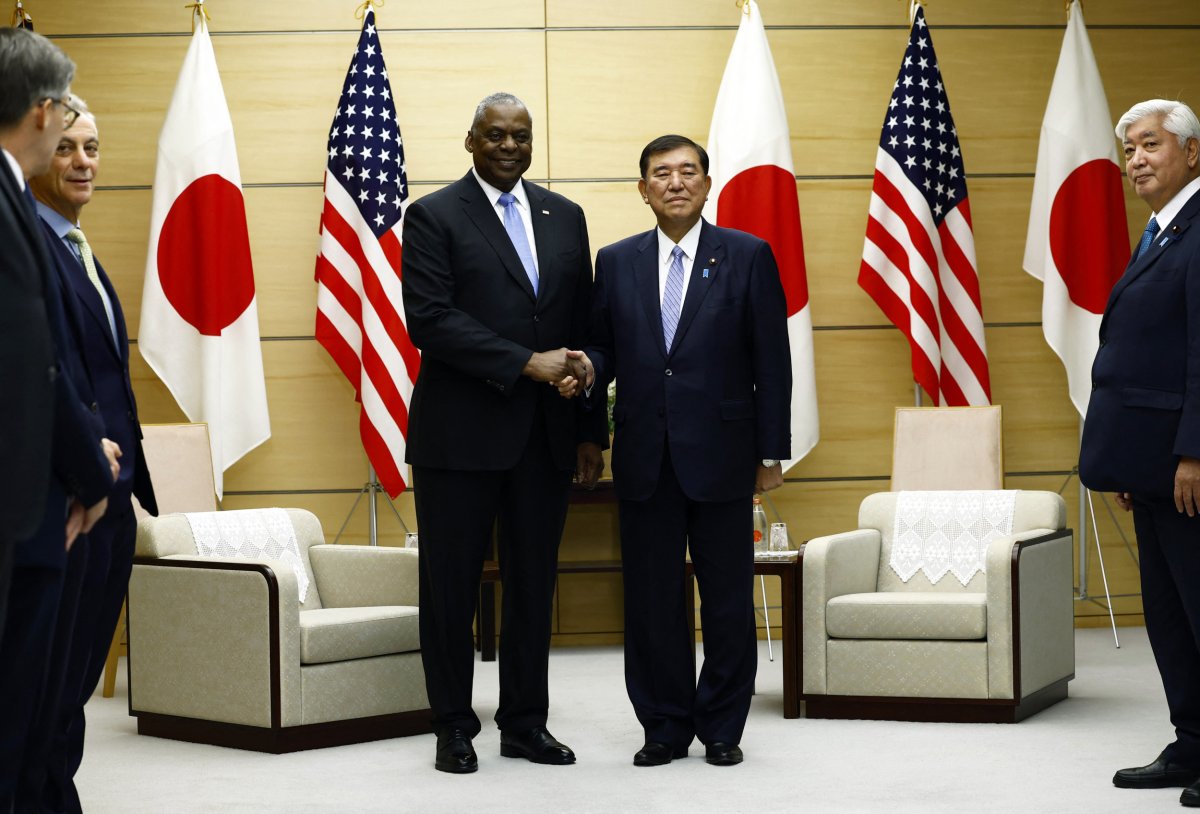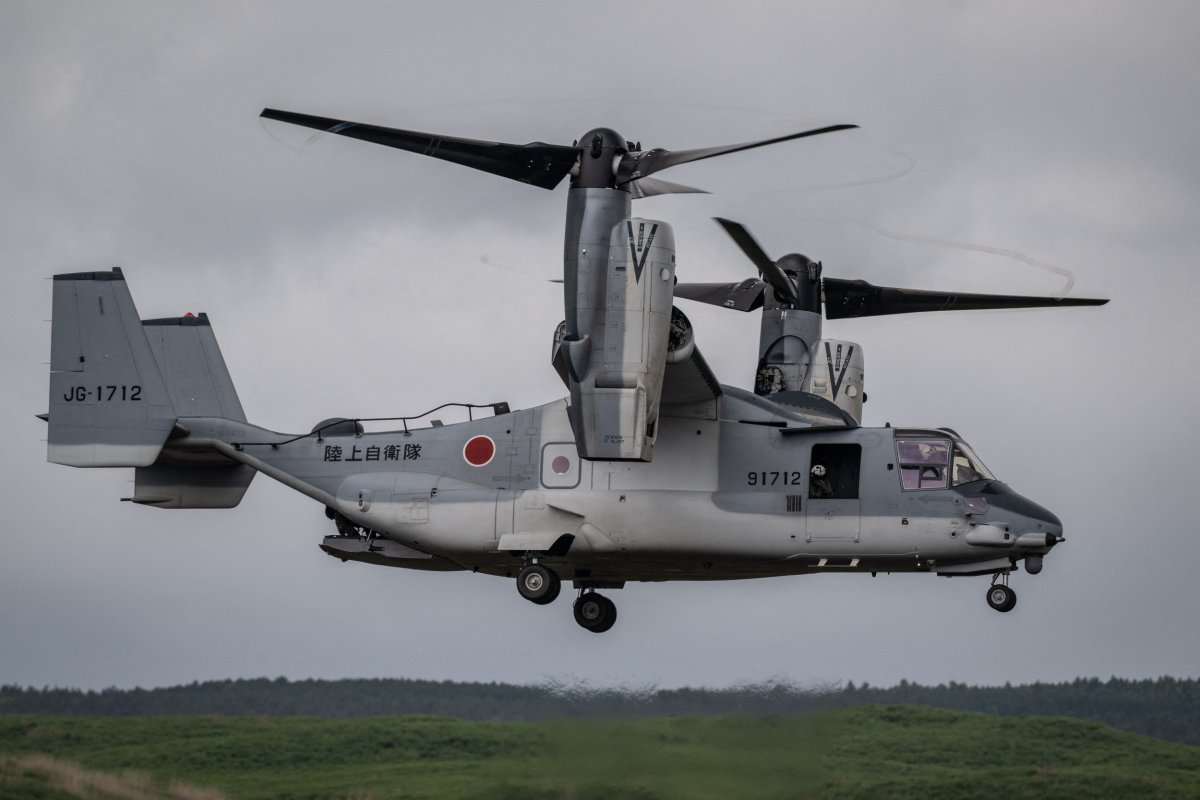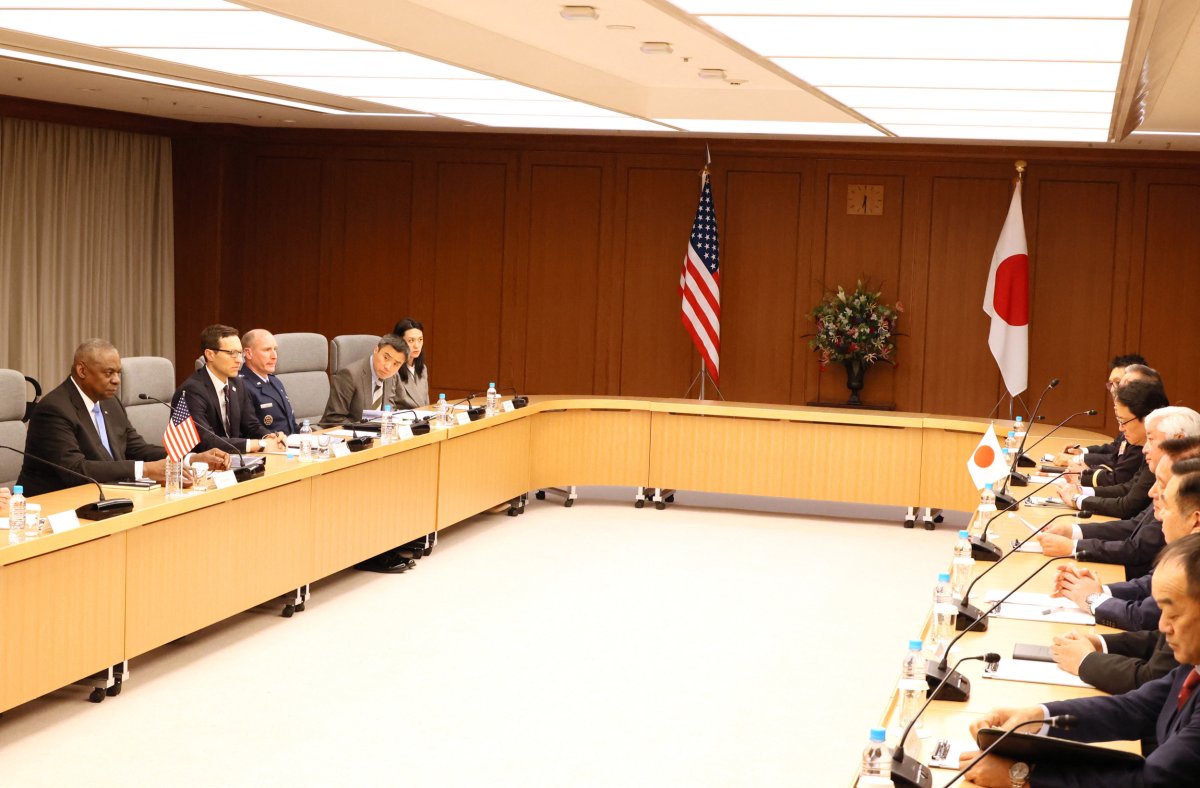U.S. Secretary of Defense Lloyd Austin arrived in Japan on Tuesday to engage with Japanese officials for the final time during President Joe Biden’s administration.
Austin is in the country to discuss the U.S.-Japan alliance in the midst of escalating regional tensions involving China and North Korea, while the Pentagon chief’s visit coincides with the U.S. military’s suspension of V-22 Osprey flights due to safety concerns, following a near-crash incident in New Mexico last month.
The decision to ground the fleet stems from an investigation which found that weakened metal components contributed to the recent incident, mirroring issues identified in a fatal crash off Japan’s coast last year.
Japanese officials are discussing the issue with the U.S. military and will “respond appropriately,” Chief Cabinet Secretary Yoshimasa Hayashi said Tuesday.

ISSEI KATO/POOL/AFP via Getty Images
Japan Continues Osprey Operation
Vice Adm. Carl Chebi, who leads Naval Air Systems Command overseeing the Osprey program, recommended the pause earlier in Dec. “out of an abundance of caution,” according to command spokeswoman Marcia Hart.
Japanese officials have not identified the same immediate safety concerns with their fleet. Despite U.S. concerns, Japan’s Ground Self-Defense Force continues to operate its Ospreys.
The country is also midway through upping its military spending to the NATO standard of two percent of GDP. If accomplished, it will reach $59 billion.
During his visit, Austin will spend time with Defense Minister Gen Nakatani and Prime Minister Shigeru Ishiba to discuss regional security and the importance of trilateral cooperation with South Korea. Fresh uncertainty was brought to this partnership due to South Korean President Yoon Suk Yeol’s recent and quickly reversed declaration of martial law, which brought political instability to the country.

YUICHI YAMAZAKI/AFP via Getty Images
Pentagon: US-Japan Alliance is Crucial
On Monday, Austin addressed crew members aboard the USS George Washington, a nuclear-powered aircraft carrier docked at the U.S. Navy base in Yokosuka, near Tokyo.
He emphasized the significance of alliances in maintaining regional stability.
“We want to see this region remain open to freedom of navigation and the ability to fly the skies in international airways,” Austin said.
“We will work with allies and partners to ensure we can do just that.”
The USS George Washington, currently undergoing maintenance in Yokosuka, is set to integrate the advanced F-35C stealth combat aircraft squadron, enhancing its operational capabilities in the region.

YOSHIKAZU TSUNO/POOL/AFP via Getty Images
Austin Warns Against China’s Conduct
Earlier on Tuesday Austin criticized China’s “coercive and risky” behavior in the Indo-Pacific—a security concern that drives stronger U.S.-Japan cooperation, which is deemed crucial while tensions rise in the region, particularly since China’s deployment this week of approximately 90 naval and Coast Guard ships near Taiwan.
Speaking on sovereignty, Austin said “China is the only country with both the intent and increasingly the capacity to reshape the international order.”
He did not mention Taiwan in his remarks. China regards the island of Taiwan as Chinese territory and there is a looming fear in the West that force will be applied by China one day in a bid to annex the nation.
“These are very dynamic times,” Austin told Prime Minister Ishiba.
“May our alliance remain the cornerstone of peace and stability in this region for the foreseeable future.”
This article includes reporting from The Associated Press


